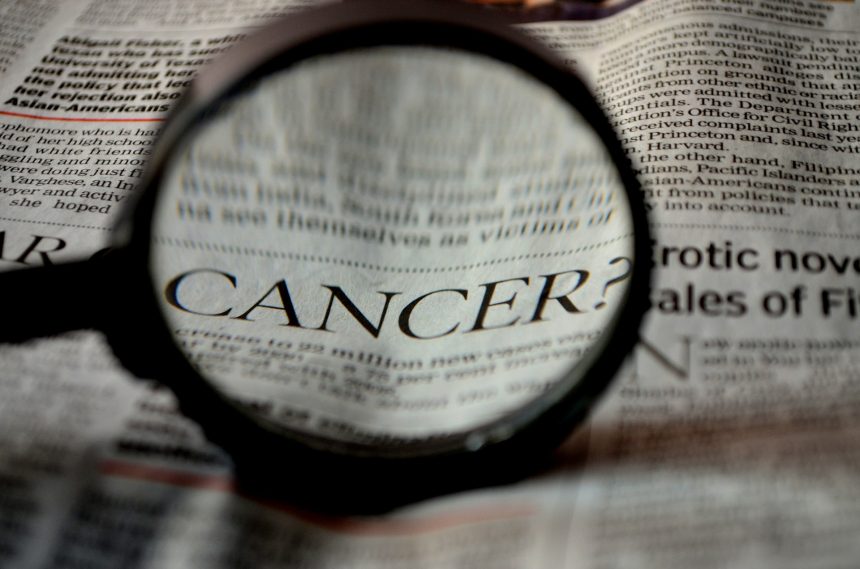Jointly Organised by A. K. Khan Healthcare Trust and Stethoscope, The Independent on February 16, at BEL Tower, Dhanmondi
Each year on February 4, WHO supports International Union against cancer to promote ways to ease the global burden of cancer. Preventing cancer and raising quality of life for cancer patients are recurring theme. February 4, is observed as World Cancer Day worldwide. Cancer is leading cause of death worldwide accounting for 7.6 millions deaths. This year the declaration of the day is, “Dispel damaging myths and misconceptions about cancer, under the tagline cancer – did you know?”. The age old notion ‘cancer has no answer’, is no more truer. Today cancer is preventable, curable and controllable. To observe World Cancer Day, A K Khan Healthcare Trust and Stethoscope of The Independent organised a roundtable at BEL Tower on 16 instant. We reproduce the proceedings of the meeting hereinbelow for our valued readers:
Panelists at a discussion meeting on Saturday underscored the need for concerted efforts, information dissemination and awareness among the people for prevention of the cancer. Dr Mizanur Rahman Shelley as chief guest made the observation at the discussion meeting on ‘Cancer, Myths and Misconceptions and Cancer Care’ jointly organised by AK Khan Healthcare Trust and Stethoscope, The Independent at the BEL Tower in the city, with Dr Maswoodur Rahman Prince, editor, Stethoscope as moderator.
Dr Shelly, a former minister of the Government of Bangladesh, said that as cancer is a serious disease it needs serious steps to prevent and cure it. “A holistic approach with the participation of all is necessary for combating cancer in the country. The government alone cannot prevent cancer unless there is active participation of all,” he added. “We expect many things from the government as it is the driving force. But at the same the people’s spirit and participation is needed. Otherwise, a good government itself cannot work properly,” he observed. Moreover, he said, “it would be dangerous if polarisation occurs among physicians, teachers, professional, lawyers for personal gains instead of defending people’s interest. I would urge the politicians irrespective of party affiliation to work together for the betterment of the country.”
About the leading causes of cancer, he said that high body mass index i.e. obesity, low fruits & vegetable intake, lack of physical activities, tobacco use (22 percent of global cancer deaths) and alcohol.
Dr Hossain as the keynote speaker also pointed out some myths and misconceptions about cancer. About the myth that cancer is just a health issue, he said that it is not just a health issue rather it is related to social, economic, development and human right implications. Referring to another myth that cancer is a disease of wealthy, elderly and developed countries, he said it is almost a global epidemic and occurs in-all age groups and all economic strata and developing countries-higher burden of certain cancers. Describing the myth that cancer is a death sentence, he explained that it is no longer true because many cancers curable even if widespread and most cancers curable in early stage and other cancers –treatable by newer, more effective drugs. About the myth “cancer is my fate”, he said that the causes and risk factors of many cancers are known and 35 percent cancers are related to smoking, alcohol and unregulated lifestyle.
Referring to the process to combat cancer, Dr Hossain said awareness about cancer among less privileged group of people for prevention, early detection-screening, appropriate intervention after diagnosis of cancer, improving cancer care facilities, use of newer & better drugs and technologies against cancer treatment can effectively contribute to achieve the target.
Describing various activities of AKKHT, Tanvir Raquib, executive director of AKKHT said about the importance of universal awareness raising for the control, care and prevention of cancer. Syeda Mahboba Monsoor, programme coordinator of AK Khan Healthcare Trust (AKKHT) outreach programme also displayed a powerpoint presentation on ‘AKKHT Outreach Programme at Korail Slum’.
Professor M A Salam said that many cancers could be cured if it is detected in the early stage but if it is too late, it becomes difficult to cure the cancer patient. However, he said, “It is very difficult for government to screen 16 crore people for cancer test as it is very expensive. But if we can motivate people for screening by their own cost, we can get a nationwide benefit. Media can play a role here in spreading information in this regard.”
“Without concerted efforts and social campaign, it is very difficult to combat cancer,” Professor Moarref Hossain said. “If we can detect cancer in the early stage it will change the scenario in combating cancer,” he observed. However, he said that many patients of the country go abroad for cancer treatment but they should know all treatments of cancer are same. He, moreover, urged all to stand against the wrong treatment of some so-called traditional physicians who claim that they can heal cancer patients and give hyped advertisement in the media to catch cancer patients.
“Treatment facilities have to be increased. If the local companies are given opportunities to manufacture medicine in the lowest cost, it would be helpful in cancer treatment,” said Professor Dr Suhrab Ali.
Dr Lelin Chowdhury, chairman, health and hope hospital said, “Many people still don’t know that cancer is curable. We have to disseminate information so that people become well-informed. Otherwise, we cannot reach the goal.”
He also underscored the need for change in life style to prevent cancer and adulteration free foods for all.
“We cannot give any advertisement for medicine but we see advertisement of those products which are not medicine. This fallacy has to be removed,” he added.
Dr. Riffat Lucy said role and responsibility of media is very important in combating cancer in the country. “People are now very conscious through media. Now we have to work with these people to prevent cancer. We have to send information to the police and advocacy level so that government can take effective measures in this regard,” she added. She also emphasised to remove the social stigma and taboos regarding the cancer.
Professor Mahbubur Rahman said that there are still various myths and a superstition about cancer – either it is contagious or not, it should be removed. He suggested the government for increasing treatment facilities and ensure affordable medicine for the cancer patients.
Dr Maswoodur Rahman Prince played the role of moderating the discussion meeting. Shahnoor Wahid, managing editor of The Independent delivered the vote of thanks. He specially thanked A K Khan Healthcare Trust for organising this important discussion meeting and observing World Cancer Day.
Prof Dr Md Mofazzel Hossain, chief consultant medical oncologist, Lab Aid Specialized Hospital displayed a powerpoint presentation, in which he said that though there is not exact statistics of cancer patient, except institution based figure but it is estimated that there are about eight to ten lakh cancer patients in the country. Annually about two lakh new cases of cancer are found in the country and about 1.5 lakh died of it, he added. He also pointed out five leading cancers such as lung, breast, cervix, head and neck and gastric.


Leave a Reply